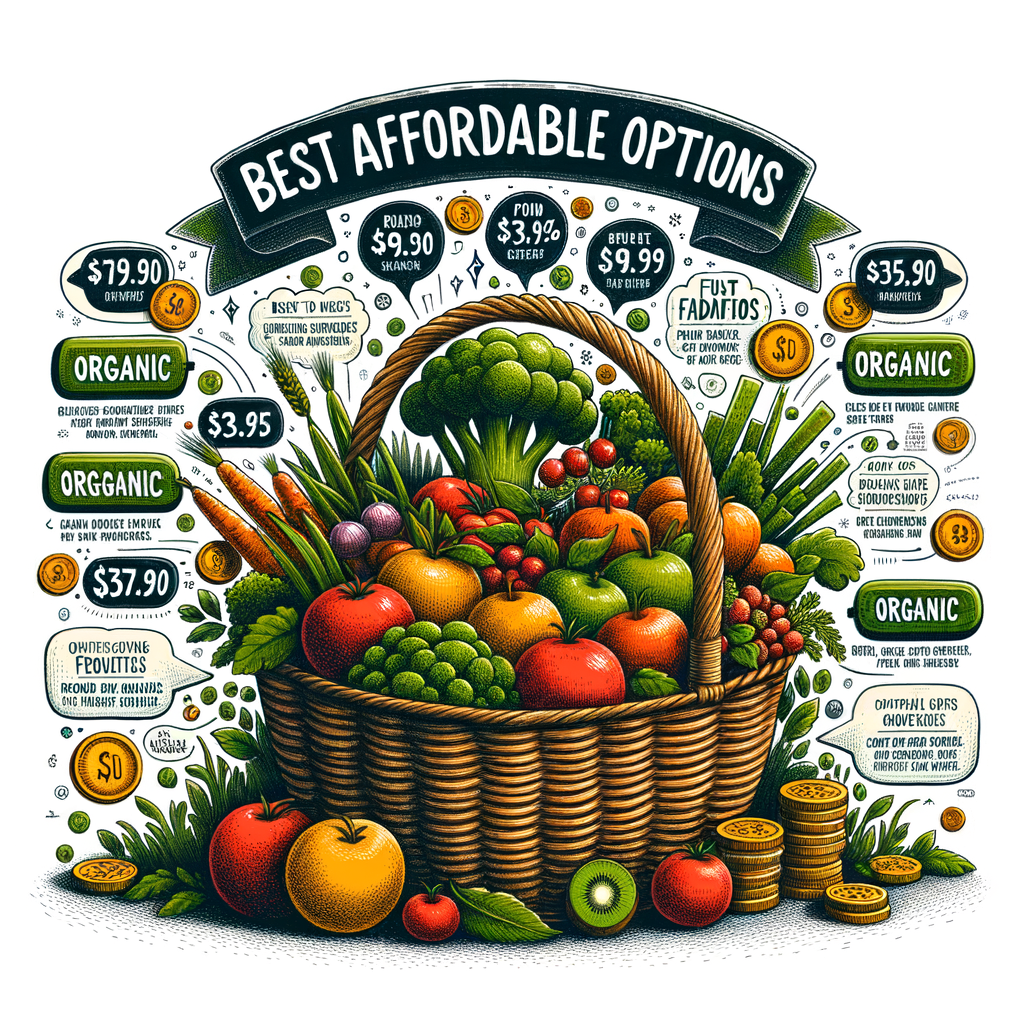
Organic Food: Best Affordable Options
- What Makes Organic Food Special?
- Benefits of Choosing Organic
- Affordable Organic Options
- Making the Transition to Organic
- FAQs
- References
Organic Food: Best Affordable Options
—
Imagine a grocery store where the aisles are filled with fresh, nutrient-rich produce, free from harmful pesticides and genetically modified organisms. This utopian vision is a reality in the world of organic food. In recent years, the demand for organic products has skyrocketed as more people become conscious of what they put into their bodies. Despite the numerous benefits of organic food, many shoppers are deterred by the perceived high costs. However, there are affordable options available that make it possible to incorporate organic items into your diet without breaking the bank.
What Makes Organic Food Special?
Unlike conventional food production, organic farming relies on natural methods to cultivate crops and raise livestock. This means no synthetic pesticides, fertilizers, or genetically modified organisms are used in the process. Instead, organic farmers focus on sustainable practices that promote soil health, biodiversity, and animal welfare. The result is food that is not only better for you but also supports a healthier planet.
Benefits of Choosing Organic
Making the switch to organic food can have a positive impact on your health and the environment. Organic produce tends to be higher in essential nutrients and antioxidants, making it a more nutritious choice for you and your family. Additionally, organic farming practices are more sustainable and eco-friendly, helping to preserve soil quality, reduce pollution, and support biodiversity. By opting for organic options, you are not only investing in your well-being but also contributing to a more sustainable food system.
Affordable Organic Options
Contrary to popular belief, organic food doesn’t have to come with a hefty price tag. With a little bit of savvy shopping and knowledge of budget-friendly alternatives, you can enjoy the benefits of organic food without straining your wallet. Here are some tips for finding the best affordable organic options:
1. Buy in Bulk: Purchasing organic items in bulk can often lead to significant cost savings. Look for stores or online retailers that offer bulk discounts on staples like grains, beans, and nuts.
2. Shop Seasonal: Seasonal produce is not only fresher and tastier but also tends to be more affordable. Visit local farmers’ markets or join a community-supported agriculture (CSA) program to access a variety of organic fruits and vegetables at lower prices.
3. Grow Your Own: Consider starting a small organic garden to grow your own herbs, vegetables, and fruits. Not only is gardening a rewarding hobby, but it also allows you to enjoy fresh, organic produce at a fraction of the cost.
4. Compare Prices: Keep an eye on prices at different stores and online retailers to find the best deals on organic products. Don’t shy away from generic or store-brand organic options, as they can often be more budget-friendly than well-known brands.
Making the Transition to Organic
Transitioning to an organic diet doesn’t have to be overwhelming. Start by making small changes to your shopping habits and gradually incorporate more organic items into your meals. Remember that every little step towards organic eating makes a difference, both for your health and the environment. By prioritizing quality over quantity and supporting sustainable farming practices, you can enjoy the best of both worlds – affordable organic food that nourishes your body and the planet.
FAQs
1. Is organic food really worth the extra cost?
Absolutely. The health benefits and environmental impact of organic food justify the slightly higher price compared to conventional alternatives.
2. Are all organic products certified?
Not necessarily. Look for the USDA Organic seal or other reputable certifications to ensure you’re getting genuine organic products.
3. Can I trust store-brand organic items?
Yes, store-brand organic products can be just as high quality as name brands. Compare labels to ensure they meet your standards.
4. Are organic foods always healthier than conventional options?
In general, yes. Organic foods are free from synthetic chemicals and pesticides, making them a healthier choice for you and your family.
5. How can I save money on organic meat and dairy products?
Look for local farmers or co-ops that offer organic meat and dairy at lower prices than supermarkets or specialty stores.
6. What are the environmental benefits of choosing organic?
Organic farming practices help to protect soil quality, reduce pollution, and promote biodiversity, benefiting the planet in the long run.
7. Can I trust imported organic produce?
While some imported organic produce is reputable, it’s always best to support local farmers and businesses whenever possible.
8. Are there specific brands known for affordable organic options?
Some brands specialize in affordable organic products, so do your research and compare prices to find the best options for your budget.
9. What are some common misconceptions about organic food?
Misconceptions about organic food include it being too expensive, not widely available, or lacking in variety, which is not always the case.
10. How can I ensure I’m getting the best value for my money when buying organic?
Look for sales, coupons, and loyalty programs at organic retailers to maximize your savings while still enjoying high-quality organic products.
References
– USDA Organic Certification
– Environmental Benefits of Organic Farming
– Tips for Budget-Friendly Organic Shopping
—

